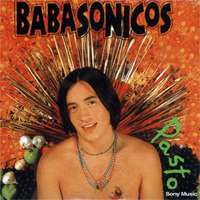Please tell us which country and city you'd like to see the weather in.

Pasto (album)
Pasto (Grass) is the debut album by Argentine rock group Babasónicos. It was recorded and released in 1992 and has guest appearances by Gustavo Cerati, Daniel Melero and members of other groups which, at the time, were also part of the New Argentinian Rock (or Sonic rock) movement, such as Martes Menta and Juana la Loca. The only single released from Pasto was "D-Generación", which was a minor radio hit at the time and made the upcoming band known to Argentinian listeners. The album has an eclectic style, with many of the tracks being short skits (such as "41" de Ocio", which consists of the band chatting between songs; or "Mutha Fucka", a track which seems to have been made by cutting and pasting together various audio samples taken from TV). It also has numerous references to cannabis culture, starting with the album name and various track names which refer to botany.
Track listing

Pasto, Colombia
Pasto (Colombia), officially San Juan de Pasto, is the capital of the department of Nariño, located in southern Colombia. The city is located in the "Atriz Valley", on the Andes cordillera, at the foot of the Galeras volcano, at an altitude of 8,290 feet (2,527 m) above sea level. The city has a population of approximately 500,000 inhabitants.
History
Pasto was founded in 1537 by the Spanish conquistador Sebastián de Belalcázar. In 1539 another Spanish conquistador Lorenzo de Aldana moved the city to its current location, and established it under the name "San Juan de Pasto". Pasto is a reference to the name of the indigenous people who inhabited the region at the arrival of the conquerors, the Pastos. However, the Atriz Valley was inhabited by the Quillacingas. A major contributor to the economy and expansion of Pasto was a man of Italian origin named Guido Bucheli.
It has been an administrative, cultural and religious center of the region since colonial times. Because of this, the city is known as the theological city of Colombia. During the Independence Wars against Spain Pasto was a royalist city, unlike the rest of the country. Partly due to this political stance, and because of its geographical location, after independence Pasto remained isolated for a long time from the rest of the Colombia.
Radio Stations - Pasto
SEARCH FOR RADIOS
Podcasts:

